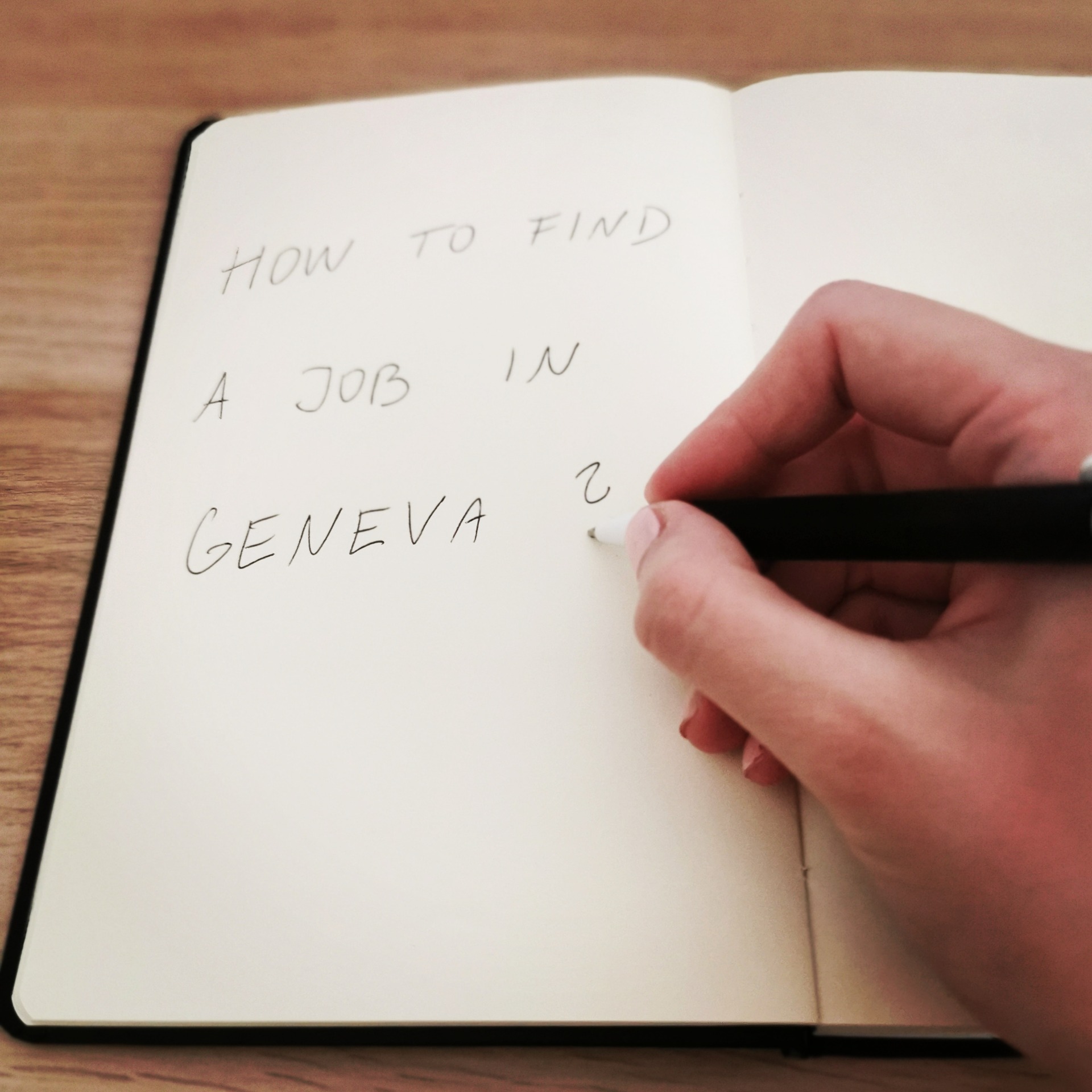Job in Geneva
In this section, you will find tips about Swiss CVs, Cover letters and
Recruitment process of local companies, international organizations,
and a list of the most common interview questions!
I love Geneva, but I had no idea that the recruitment process here would be so difficult.
Unfortunately, I will not find you a job, however, I would like to give you some tips which could help you to succeed.
Where to search

Recruitment agencies
As in Geneva, there are so many candidates for one position, the recruitment agencies usually do not search for a job for the candidate, but they search for suitable candidates for companies. You can send your CV to these agencies, as I did, but usually, they will ask you to apply for the positions directly on their websites.
If your profile is short-listed, you will be contacted by a responsible HR consultant, generally in few days after you apply. Do not be surprised if an unknown number calls you. They prefer to speak with you directly. If you do not receive any notification within two weeks, you are not selected for the next step.
Geneva-based agencies: Academic Work, Adecco, Ampersand, Experis, Hays, Interima, Interiman, Manpower, Michael Page, Randstad, Start Emploi etc.
Preparing an application
Swiss CV
At the beginning of my search, I created different CVs but received feedback from agencies that clients did not understand those CVs. The clients (companies) prefer a simple and clear format. If you are not applying for some creative position (ex. Graphic designer), do not use unusual styles. I would advise you to find a Swiss CV template on internet and just fill it in.
Swiss CV templates: example1, example2
Cover letter
In most of your applications, you will be asked to send a motivation letter together with your CV. You should adjust this letter every time you apply in order to fit the position description and requirements. However, it is good to have a template prepared before you start your application, and just modify the necessary information. It will save you a lot of time.
Tips on how to write a Cover letter: tip1, tip2, example
Work certificates
In some advertisements, they will ask you to send them also work certificates during the application process. According to a Swiss code, the employer has to issue a work certificate to the actual or former employee. If you do not have work certificates, do not panic. Try to explain in some comment section that in your country, you do not use work certificates. Or you can create your own template and send it to your previous employer to complete it.
Parts of Work certificate: tip
Preparing for an interview
How it goes
After passing few interviews, you will find out that the questions are repeating.
Firstly, they will ask you to tell them something about you (your working experience) and why you applied for that position (explaining why you are the suitable candidate).
Then they pass to the competency-based questions. That means they will ask you what did you do in some situation (not what would you do!) and you have to describe that situation. It is good to work on these questions before the interview, so you will have a prompt answer!
Frequent questions
The website umid.info wrote down well the list of the United Nations questions for the competency-based interview and I have to say that almost all companies use this kind of questions. So if you will prepare answers to these questions according to your experience, you will be well prepared for any interview
You can find all questions together here on my website!
International organizations
Process
The hiring process in international organizations is different from the process in recruitment agencies. They publish the advertisements on their career websites and all the process is held in their own system. You will have to set up your profile (personal information, education, work experience) for every organization.
If the job type is permanent, the position is usually open for one month. After the due date, you cannot apply.
STAGES:
– If you are not short-listed, in a lot of cases, you will not be even noticed. Sometimes, the email with the rejection arrives after months, a year…
– If you are short-listed, usually one month after the due date, you will receive an invitation email for a written assessment.
– If you are successful, few weeks after the written part, you will be invited to a competency-based interview with the assessment panel (3-5 members) and after another few weeks, you will receive the answer.
Some of the big international organizations have their specific recruitment process, so I will explain it separately below.
The International Trade Centre (ITC)
The ITC is a multilateral agency that has a joint mandate with the World Trade Organization (WTO) and the United Nations (UN) and is involved in many projects. They publish a lot of interesting positions on their career website (here)!
They have the same system of levels and grades as the UN has and also you will have to create a candidate profile there.
The stages are written assessment and a competency-based interview. The written tests contain more tasks in different MS Office applications – like editing Word, creating a PowerPoint presentation or working on an Excel table.
The United Nations
All positions are published on the UN Careers portal – here.
They are divided into levels (D – directors, P – officers, G – general administration position, I – internships) and then into grades (1 – 7, when 1 is the lowest grade of that level)
When you apply for the first time, you have to create a profile in their Inspira system – personal information, education, detailed work experience, certificates etc.
For P-positions the stages are written test (official letters) and interview.
For G-positions you have to first pass the GGST exam which is a mandatory stage before you will be selected for the written test (official letters or different tasks) and interview. You cannot sign up for this exam on your own, that is an HR consultant who will decide if you are a suitable candidate for the position and will invite you to this test.
If you pass, this exam will be valid for 5 years and you do not have to repeat it when applying for other G-positions. All information and the sample GGST test you will find here!
If you were successful during the interview but not selected for the position, you can be offered to become "roster". That means that you will be placed on their list of suitable candidates and if there will be a similar position opened, you will be preferred!
The International Labour Organization (ILO)
The ILO is a United Nations agency engaging in advancing social and economic justice through setting international labour standards.
They have the same system of levels and grades as the UN has and also you will have to create a candidate profile there (link).
Comparing to other organizations, there are more stages during the hiring proces:
– Clerical test (MS Office competency online test)
– Written test
– Pre-interview competency-based assessment centre (4-hour test in their centre)
– Competency-based interview
